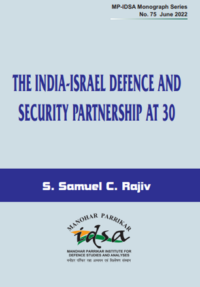Refining Draft Defence Offset Guidelines 2020
The draft offset guidelines 2020, with revamped features, is a bold attempt at attracting technology and investment as well as promoting defence exports. However, the MoD may consider further refining some of the features of the revised guidelines.
- Laxman Kumar Behera
- June 08, 2020











